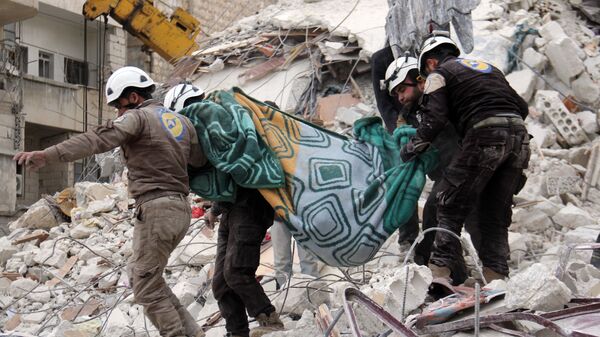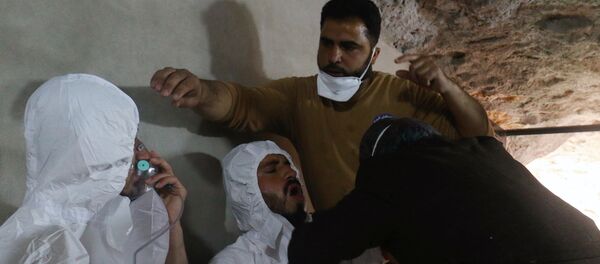MOSCOW (Sputnik) – Western resistance to an international investigation into the alleged chemical attack in Syria’s Idlib Province under the auspices of the Organization for the Prohibition of Chemical Weapons (OPCW) will only increase, Kosachev, chairman of the Foreign Affairs Committee at the Federation Council (the upper house of the Russian parliament), says.
"Now that missile attacks have been carried out by the US without there having been any objective investigation results, all resistance to an objective investigation will only increase," Kosachev wrote on Facebook.
He stressed that international expert teams must carry out work in Idlib under the most transparent conditions and using clear methods.
"There should be no doubts about the objectivity of the OPCW and the correctness of the methods used. For now, questions remain, unfortunately. For example, both of the OPCW groups on Syria are headed by British nationals, why is that? In addition, the samples are studied somewhere on the territory of Turkey. How, when and where the samples are taken and in what labs they are studies is being hidden from the public. Experts refuse to travel to the scene," Kosachev said.
On Friday, Russian Foreign Minister Sergey Lavrov said Russia, Syria and Iran insisted on a thorough investigation under the OPCW auspices into the Idlib incident.
On April 4, the National Coalition for Syrian Revolutionary and Opposition Forces blamed the Syrian government for an alleged chemical weapon attack in Khan Shaykhun in the Idlib province in Syria. Damascus denied any involvement in the Idlib incident, saying that the Syrian government does not possess such weapons.
Days after the Idlib incident, the United States launched 59 Tomahawk cruise missiles at the military airfield in Ash Sha’irat in Syria. US President Donald Trump said that the missile attack was a response to the alleged chemical weapon use in Syria's Idlib.
Following a chemical weapon attack in Syria’s East Ghouta in 2013, when hundreds of people were killed, Syria joined the Convention on the Prohibition of Chemical Weapons. This was the result of an agreement between Russia and the United States on the destruction of chemical weapons in the country under OPCW control and stopped the US military intervention in Syria.
In January 2016, the OPCW announced that Syria’s entire chemical weapons arsenal had been destroyed.




